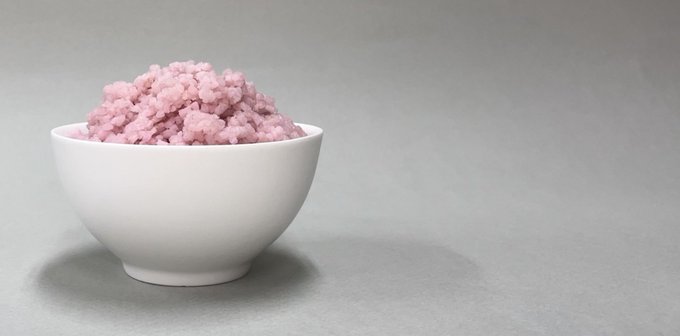Korean researchers have unveiled a novel approach to food production: growing animal cells directly inside rice grains! This “cultured beef rice” offers a potential solution for sustainable and nutritious protein, combining the familiarity of rice with the benefits of lab-grown meat.
The research team, led by Sohyeon Park, published their findings in the journal Cell Press. They mimicked the natural environment for animal cells by utilizing the porous structure and helpful molecules within rice grains. After coating the rice with fish gelatin for better cell adhesion, they introduced cow muscle and fat stem cells and cultured them for 9-11 days.
The result? A hybrid rice enriched with protein and fat. Compared to normal rice, the “beef rice” boasts 8% more protein and 7% more fat, with a firmer and slightly different texture. Interestingly, the researchers discovered that the protein content influenced the final aroma, ranging from beefy to almond-like, while the fat content resulted in creamy, buttery, and coconut oil-like notes.

“Imagine obtaining all the nutrients we need from cell-cultured protein rice,” Park stated. “Rice already has a high nutrient level, but adding cells from livestock can further boost it.” This innovation holds immense potential for addressing food security concerns in a sustainable and eco-friendly way. Livestock farming demands extensive resources and generates significant greenhouse gas emissions, while lab-grown meat offers a more environmentally conscious alternative.
The “beef rice” is still in its early stages, but it represents a significant step forward. Further research and development are needed to optimize the process, explore different cell types and flavor profiles, and ensure food safety and regulatory compliance. However, the potential of this hybrid protein source to address nutritional needs while minimizing environmental impact is undeniable.
Who Leads India to T20 Glory in 2024? Read More












